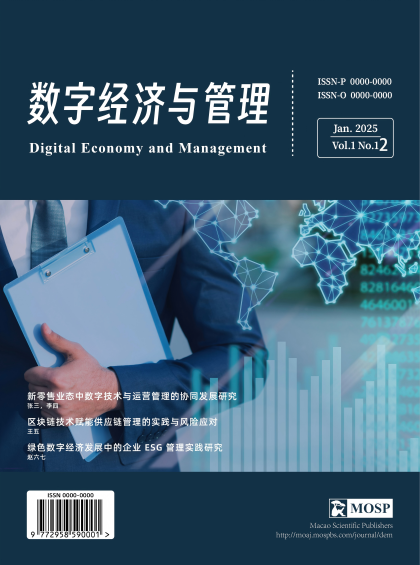摘 要:
随着金融科技的发展, 智能投顾正在迅速生长并对传统财富管理产生了巨大影响。本文通过分析智能投顾的工作原理和特点,对比传统财富管理的服务模式,探讨了智能投顾对传统财富管理业的替代效应。智能投顾以其低成本、高效率、灵活服务和个性化的投资建议等优势,正在逐步取代传统的财富管理服务。然而,智能投顾无法替代传统财富管理在复杂投资决策和人工智能无法模拟的人性面对面沟通等方面的优势。通过实证研究发现,智能投顾的普及,一方面可以扩大财富管理服务的覆盖范围,另一方面也催生了传统财富管理业的服务模式创新。这种替代效应并非单纯的"零和游戏",而是在某种程度上推动了传统财富管理业务的转型升级,进而促进了整个财富管理行业的持续发展。因此, 本研究得出结论:智能投顾对传统财富管理业的替代不是彻底的替代,而是相辅相成,共同推动金融服务的创新与发展。研究结果为理解金融科技对于传统金融业态的影响及财富管理业务的未来发展趋势提供了有益的参考。
关键词:智能投顾;传统财富管理;金融科技;替代效应;服务模式创新
Abstract:
With the advancement of fintech, robo-advisors are rapidly growing and exerting a profound impact on traditional wealth management. This paper analyzes the operational principles and characteristics of robo-advisors and compares them with the service models of traditional wealth management to explore the substitution effect of robo-advisors on the traditional wealth management industry. Leveraging advantages such as low costs, high efficiency, flexible services, and personalized investment advice, robo-advisors are gradually replacing traditional wealth management services. However, robo-advisors cannot fully replicate the strengths of traditional wealth management in complex investment decision-making and the human-to-human interpersonal communication that AI cannot emulate. Empirical research reveals that the proliferation of robo-advisors not only expands the reach of wealth management services but also spurs service model innovation within the traditional wealth management sector. This substitution effect is not a simple "zero-sum game"; rather, it promotes, to some extent, the transformation and upgrading of traditional wealth management businesses, thereby fostering the sustainable development of the entire wealth management industry. Consequently, this study concludes that the substitution of traditional wealth management by robo-advisors is not a complete replacement but rather a complementary relationship that jointly drives innovation and development in financial services. The research findings offer valuable insights for understanding the impact of fintech on traditional financial landscapes and the future development trends of wealth management businesses.
Keywords: Robo-advisors; Traditional wealth management; Fintech; Substitution effect; Service model innovation
--
